3 Faze Učenja za Strance u Hrvatskoj: Ljubav, Mržnja & Nirvana
Život stranaca koji su već dulje vrijeme u Hrvatskoj prilično je zabavan.
Naravno, to sa sobom donosi i potrebu za određenom dozom prihvaćanja. Kao što smo već vidjeli, na primjer,je li u redu da stranac u Hrvatskoj ima mišljenje??
Nakon što naučite da vam nije dopušteno imati mišljenje, druga važna stvar koju trebate prihvatiti da biste živjeli u miru jest da će se, bez obzira na to što rekli, netko usprotiviti i započeti raspravu. Stoga ili imajte vrlo debelu kožu ili nemojte ništa govoriti.
Razmišljao sam o svemu tome nedavno uz hladno pivo i počeo osjećati blagu paniku. Kristina Ercegović, koja vodi poduzetnički klub Business Cafe, pozvala me da govorim na prvom izdanju Business Cafe Internationala, na kojemu su stranci koji posluju u Hrvatskoj dobili prigodu održati predavanja i međusobno se upoznatu, te se pridružiti njezinoj odanoj ekipi uspješnih hrvatskih poduzetnika.
Govorenje u javnosti jedna je od rijetkih stvari u životu koje se grozim više od blitve i kelja pupčara, no Kristina je bila vrlo uvjerljiva pa sam se u društvu svojeg piva nekoliko dana prije događanja počeo pitati što bih zapravo trebao reći. Sasvim sigurno nisam najuspješniji poslovni čovjek koji se ikad pojavio na ovim prostorima, pa je bio popriličan izazov odazvati se pozivu da iznesem svoje savjete brojnim uspješnim poduzetnicima.
A onda je netko prokomentirao jedan od mojih postova s nekom pozitivnom porukom o Hrvatskoj koju sam objavio na društvenim mrežama. Negativna reakcija, s porukom da ću jednog dana napokon shvatiti kakva je Hrvatska, a zatim i val uvreda.
Bio sam vrlo zahvalan tom kritičaru budući da mi je pružio ideju za moju prezentaciju, za koju sam bio siguran da će zainteresirati publiku, kao i prikriti činjenicu da jednostavno nemam neki pametni poslovni savjet koji bih mogao dati.
Tri Faze Učenja za Strance u Hrvatskoj: Ljubav, Mržnja & Nirvana
Kad kažem nešto pozitivno o Hrvatskoj, ljudi se smiju, a kad kritiziram, onda me vrijeđaju. To je vrlo zanimljivo. No, shvatio sam da je iskustvo stranaca koji žive ovdje povezano s fazom u kojoj se nalaze od ukupno tri faze učenja. Upoznajmo ih sada redom.
Faza 1 – Ljubav (oko 70% stranaca, možda i više)
Proveo sam 13 godina života u Hrvatskoj zaglavljen u fazi 1, a bilo je puno situacija u kojima sam žalio što sam ušao u drugu fazu, no s tim je sada napokon kraj jer je treća faza najbolja od svih.
Što se ima za ne voljeti u vezi s Hrvatskom? Predivno turističko odredište, zapanjujuća priroda, opušten način život, sjajno vrijeme, divna hrana i vino, i daleko niže cijene od država kao što je Velika Britanija. Nisu samo turisti oni koji žive u prvoj fazi.
Mnogi stranci koji žive ovdje također su zaglavljeni u toj fazi, kao što sam i ja bio toliko dugo. Ako ne govorite jezik, teško je pratiti što se doista događa u državi. S toliko puno drugih stranaca s kojima se možete družiti, dodir sa stvarnim svakodnevnim životom u Predivnoj Hrvatskoj ograničen je na povremene bitke s birokracijom kako bi se dobila poneka dozvola ili možda njih tri.
Zarađujete li dovoljno za život (a mnogi to rade preko interneta ili s prihodima izvan Hrvatske), onda je faza 1 života u Hrvatskoj dosta dobra. I svesrdno je preporučam.
Faza 2 - Mržnja (oko 25% stranaca)
If life is so good then, why is everybody always complaining and all the young people leaving?
Ako je život tako dobar, zašto se onda svi neprestano žale, a mladi odlaze?
Dolazimo do faze 2 – Mržnje. Krivac za pokretanje TCN-a u potpunosti je moj prijelaz iz faze 1 u fazu 2. S današnjeg gledišta, ne mogu vjerovati koliko sam naivan bio kad sam pomislio da bih mogao pokrenuti informativni portal o državi o kojoj se moje poznavanje, uz iznimku otoka Hvara, ograničavalo na barove u Dioklecijanovoj palači i maleni djelić središta Zagreba. Priča o dvije Hrvatske: prije i poslije otkrića Uhljeba, bila je poput otvaranja Pandorine kutije (samo još gore). Nakon što sam ušao u svijet moćne države Uhljebistan, idilična Hrvatska iz faze 1 zauvijek je izgubljena.
Počeo sam se daleko češće tuširati. Nisam mogao vjerovati o brojnim pričama o otvorenoj korupciji, nepotizmu i tragična svjedočenja onih koji nemaju ništa, a koje su bile realnost za milijune izvan mojeg izoliranog i predivnog Hvara iz faze 1.
Nepravde i nejednake mogućnosti, toliki mladi koji odlaze ne zato što ne mogu pronaći posao, nego zato što su isključeni iz sustava u kojemu se mogućnosti otvaraju putem veza, a ne osobnih zasluga. Pridodamo li tome radost vođenja tvrtke u ovoj zemlji, neprestanu negativnost tolikih i na najmanju pozitivnu poruku, počeo sam se pitati: jesu li u pravu svi oni koji ismijavaju moju pozitivnost i predviđaju da će doći vrijeme kada ću i ja dignuti ruke od Hrvatske i otići? Počeo sam ozbiljno sumnjati, dok se moj odnos prema državi koju sam počeo voljeti mijenjao.
Faza 3 - Nirvana (oko 5 % stranaca)
Mračni trenuci faze 2 nužno su zlo da biste došli do faze 3 - Nirvane, što je najbolje stanje ako ste stranac u Hrvatskoj, barem po mojem mišljenju.
Iskreno i otvoreno pisanje o Hrvatskoj donijelo je i nešto dobro. Premda su članci i konstruktivna kritika izazivali val vrijeđanja, donosili su i poruke ohrabrenja. Iz cijele Hrvatske i dijaspore. Maleni mjehurići pozitivnosti iz cijele zemlje, od ljudi koji su već odavno digli ruke od Države, ali vole Hrvatsku i žele živjeti ovdje. U svojim mjehurićima, samo su minimalno dolazili u kontakt s Državom. Njihovi se mjehurići sastoje od Hrvatske njihovih prijatelja, obitelji, prirode i poslova –to je općenito vrlo sretna sredina u kojoj se usredotočuju na ono što je doista važno.
Jedna mi je hrvatska prijateljica rekla da ne prati politiku jer to jednostavno nema smisla. Osim svih negativnosti koje bi i anđele u raju dovele do uzimanja antidepresiva, nije imalo smisla i zato što se nikad ništa ionako neće promijeniti. Puno je bolje vrijeme provoditi planinarenjem po predivnim hrvatskim planinama, daleko od Uhljebistana.
Polagano, vrlo polagano, sve se više tih mjehurića počelo dodirivati. Bili su to mjehurići pozitivnosti koji plutaju po Uhljebistanu i ostaju imuni na ludilo oko njih. Ti su se mjehurići počeli povezivati, neki i putem TCN-a. Sjajne nove inicijative u medicinskom turizmu, poduzetništvu, kontaktima s novim naraštajem iseljeništva, idejama za očuvanje prirodnog okoliša i inovativni luksuzni turizam, kao i veća izloženost poticajnom svijetu i golemom potencijalu hrvatske IT industrije.
Dobro došli u Hrvatsku faze 3, vjerojatno najuzbudljivije i ponajviše okrepljujuće mjesto u kojemu sam živio u svojih 50 godina na ovom divnom planetu. Hrvatska takve pozitivnosti, dinamičnosti i inovativnosti s najluđim idejama da često liježem smijući se te se ustajem smijući se. Moja supruga još mi nije rekla da se smijem i u snu, no ni to me ne bi iznenadilo.
Za Hrvatsku faze 3 potrebno je razumjeti i prihvatiti način na koji Hrvatska funkcionira. I odnos s Uhljebistanom je drukčiji, kao što sam to objasnio na okupljanju Business Cafe Internationala, dio kojeg možete pogledati dolje.
Usporedio sam to s osobom koja voli piti, a živi u Norveškoj ili Švedskoj. U Skandinaviji postoji visok porez na alkohol, što je dio cijene koju plaćate za život tamo ako želite zadovoljiti svoju naviku ispijanja pića.
Isto je i s Hrvatskom, njezinim predivnim načinom života i prirodnim ljepotama. Dio cijene koju plaćate je porez na uhljebe. Platite ga, krenite dalje i okružite se mjehurićima pozitivnosti i mogućnosti.
Nadam se da će i neki od vas ubrzo doseći fazu 3. Riječ je o doista nadahnjujućem mjestu.
A ako ste i vi jedan od tih mjehurića pozitivnosti i želite nam se javiti, kontaktirajte nas na This email address is being protected from spambots. You need JavaScript enabled to view it.
Razmišljate o selidbi u Hrvatsku? Evo nekoliko naputaka o onome što biste trebali imati na umu na našim stranicama Hrvatska u 100 stranica Život u Hrvatskoj..
Nigerian in Zagreb Opens Restaurant: "People With No Money Eat Free"
A touch of Africa in the heart of Zagreb, more precisely on Ilica 73 in central Zagreb, as Okoli Kikelomo from Nigeria officially opens her new (well, sort of) African restaurant ''MamaVeek's Kitchen''. ''We don't have a pricelist, people who don't have any money can come and eat for free,'' stated the warm-hearted Okoli.
As 24sata/Anamarija Milos writes on the 6th of April, 2019, the African bistro ''MamaVeek's Kitchen'' which moved from Ilica 69 to Ilica 73, was initially opened six years ago by Okoli Kikelomo who came to Croatia from Nigeria in search of a better life than what she felt Nigeria could offer her.
The opening of her new-yet-old restaurant officially began at 16:00 and Okoli said that there is no price list in her restaurant, people are free to leave donations, and those who don't have any money are more than welcome to come and eat for free, she also added that she would continue to serve only traditional African recipes in her kitchen.
Okoli arrived here in Croatia six years ago in search of a better life, and since then, she hasn't stopped - she founded a humanitarian association, organises various art workshops, she volunteers, but in spite of all her many activities, this ''jack of all trades'' is mostly devoted to cooking African food at ''MamaVeek's Kitchen''.
Okoli is a talented cook, and she learned it all from her grandmother, and she made her very own first dish eight years ago. Her passion for African cuisine is so strong that her desire is to transfer it to her visitors through her hard work in her African restaurant. The food served there is mostly bought at the Zagreb's Dolac market, but the exotic spices with which she enrich her traditional African dishes are sent to her from her mother who is back in Nigeria.
Despite her love of African cuisine, Okoli has taken on the task of learning to prepare and cook Croatian cuisine.
"In these past six years, I've learned how to prepare sarma and tripe in Croatia. I know how to make fish paprikaš too, but for my guests, especially for the opening, I'll prepare an African soup with meat and a special fish dish,'' Okoli noted.
Make sure to stay up to date by following our dedicated lifestyle page. If it's just the capital you're interested in, give Total Zagreb a follow.
Click here for the original article by Anamarija Milos for 24sata
Language, School and Friends - What Life is Like for Teen Expats in Zagreb
It's true Croatia may not pose the most favourable conditions for young adults looking to get out into the world and establish themselves.
As funny or unusual as my story may seem, it's met with confusion and shock for good reason. On the other hand, families and younger teens and children who move over here are generally supported and understood. It’s not so out of the blue or strange to want to bring and raise your family in Croatia, with playgrounds and green spaces a mass, low crime and a good school system. In an effort to combat the mass exodus of Croatian citizens, the Croatian government even grants allowances per newborn to encourage families which, in the town of Sali for example, can reach up to 10.000kn per newborn (feel free to read more here).
The short version is simply the fact that Croatia places a high priority on family life, but has this translated into the lives of the expats kids who move here with their family?
Before me, my younger brother (we’ll call him Filip) was the first to move here. Plucked out of school in England at the start of Year 8, Filip had just begun high-school in the UK. After a difficult time and a lot of change since then, he now finds himself studying and socialising at a local Croatian school in a small town not far from my parents village. Here is what he has to say about the experience...
“It was a very stressful and difficult change to make, I had a little bit of excitement but was afraid of everything, of having to get to know this new country as I had no idea what to expect really”.
I asked him if he was most afraid of having to make new friends, “nope” he responded as if that was a dumb question to ask.
“Really?, not at all?”
“No, I mean you just get on with it, that wasn’t the scariest part”.
We continued our conversation about friendships and connected on the limitations of the language barrier. Understandably, his main advice for those deciding to move to Croatia would be to have some knowledge of the language beforehand, even if just basics.
“It’s easy to make friends, everyone is pretty open and friendly and there will always be those that are fluent in English, but not everyone speaks English well...without some Croatian, it limits who you can talk to and there’s not that same connection as you would have with people who speak your own language”.
We chuckled at this point, and I definitely agree with him. You can always have friends and be courteous with each other but making a real connection is the tricky part. The language barrier does end up limiting your social circles and what you can get up to no matter how outgoing or positive you might be. Sitting at a cafe table with a group of our Croatian colleagues one time, my expat friend from Australia joked that “we have that Western understanding” and it’s very true.
Don’t let that discourage you though. My brother, now coming to the end of his second year at a Croatian school, says he’s very happy and wouldn’t change how things are.
“While we’re in a small village there isn’t much to do except hang out at the cafe bars or at each other’s place, but we always find something to get up to. In Zagreb there’s a ton of things to do”.
From most of the kids I’ve spoken to language wasn’t a central issue. While daunting, they managed to pick up Croatian pretty quickly and the majority of their peers spoke decent to fluent English so communication wasn’t hard. The teachers were supportive and keeping up with the classes was a challenge but not impossible.
On the other side of the spectrum, I also spoke with two wonderful girls, Nina, 16 and Marica, 14 who moved here from Australia. They both arrived with some understanding of the Croatian language, so their experience settling in was a little different as well as their initial fears.
Before the move, Marica recalls worrying what the Croatian kids would think of her, if she’d be able to build friendships and easily fit in. While her older sister Nina, was excited for the move saying she was looking forward to something new and a totally different environment. Once here, their experience of adjusting to life in Croatia continued to be polar opposite, but not in the way anyone expected.
As she arrived aged 13, Marica was able to start a regular Croatian state school in their town just outside of Zagreb. She had a ton of support from the state and her school, spending the first semester entirely dedicated to getting adjusted to the new system and focusing on language learning - which amounts up to 70 hours of Croatian all funded by the state. Over time, Marica found herself settling in easily and starting up a new social life. I asked if she'd consider staying in Croatia or if she has any desires to move back to which she responded cheerfully that, she’ll give it a go [in Croatia].
Nina, being much older, found the move more challenging and was launched into the intense IB course at an International school in Zagreb. Nina found the support was much more limited compared to her younger sister, and has had a more challenging time connecting with her also foreign peers given the intense curriculum, competitive academics and social divides.
Overall, both sisters as well as parents can agree that school and life abroad can reap many universal benefits, from confidence to a well rounded worldview. But with regards to Croatia, both advised to not set high expectations on life here. Go with the flow, and adapt to the culture instead of trying to change it or comparing to life before was the takeaway.
It’s fair to say the benefits of studying and growing up in Croatia are no more apparent than doing so in another European city, however, families can rest assured there is a ton of support from other expat families, the government and schools if they do decide to come to Zagreb or Croatia in general (checkout the expat parents in Zagreb Facebook group for a start!).
It’s reassuring to know a stable social life is more or less easily attained as well. In line with my brother’s experience, I heard over and over that coming younger makes adapting, school and language learning easier. It also opens up more options, since particularly in Nina’s case she had to go to an International School to finish her studies as the Croatian system was too different for her to jump into.
At the end of the day, I can only commend my brother’s as well as Nina and Marica’s brave dive into a new culture and the way they've managed to transform the experience into something positive at such a younger age, and I can only hope the experience continues to shape them as well as encourage others to experience life in a totally new environment (whether in Zagreb or elsewhere!)
Please note that the names mentioned in this article have been changed for the sake of privacy
Interested in more about life in the capital? Give Total Zagreb a follow. For more from Mira and her experiences, follow her here.
From London to Croatia: A Foreign Teen's Adventures in Zagreb
The top three questions I get asked to this day by Uber drivers and colleagues alike are, ''What do you think of Zagreb?'', ''Why did you come here?', and ''What do you do here?''
In a brazen attempt to address the final question, I thought long and hard about what I could expose, what crazy stories I could tell, without telling too much. A few ideas came to mind that perfectly encapsulate my last year here, shedding light on what a foreign teen with no connections can experience when you give yourself up to chance.
From meeting strangers in the night to accidentally taking the wrong train to Budapest, I make up for the lost time spent in my room in England by playing into Zagreb’s strengths - drinking, socialising and working. It got to the point where I asked my friend “What I should I do tonight, I have nowhere to go!” and she responded crassly “How about going to that place that, you know, you PAY FOR ON A MONTHLY BASIS?, that little place called your apartment!”.
She gives good advice sometimes. I’ve managed to mould something out of nothing here and with little language skills thanks to those around me. I want to hammer that in, not at all to brag but because having read post after post in expat forums and online about “I want to travel to X place but I’m afraid of not making friends, I’m afraid of being lonely or stuck”, I can’t help but yell “It’s completely possible”.
One night I like to remember in particular, I found myself sitting tipsily in the corner of a karaoke bar with little recollection of the journey there. I was sat with people I had met only twice before (coffee once and that New Year’s night), drinking a decent 15 kuna glass of vodka and coke while periodically stealing sips of the friend next to me’s beer. He noticed eventually and bought me my own.
We were in an edgy and low-key karaoke bar, called Pračka (Croatian for sling or catapult), hidden in the centre of Zagreb. Let me clarify, I had little recollection of the journey there, in part due to my drunken state, but mainly because the bar was located on some street that looked like all other streets around it, at the bottom of a block of flats, indicated only by the entry door - a big, black metal door covered in stickers. I’m not sure how people manage to spot this sober let alone three Tomislav beers in to a night out.
I’ve come to have a few stand out memories of Pračka (Edit: I’m still unable to locate the bar on my own). One night was spent with a tram obsessive, a girl, and a man I’ve come to nickname Berlusconi. It was my first introduction to turbo folk and first lesson in how to awkwardly sing and dance along to a song you don’t know - a very important lesson for all new expats! As a result one of favourite folk songs is Kad Sam Bio Mlad by Riblja Corba.
The second was at an office party. Late into the night, I was waiting at the front of the queue for the bathroom. In an instant one of the doors threw open in a loud clamour. Out of the doors fell a couple, mid doggy style, who slammed their backs against the wall of the bathroom in full view of the entire queue and part of the club. We all burst into laughter and let me tell you, in this whole scene the couple were not phased (only a little surprised at the fall) and did not let it ruin their.. moment.
They promptly glanced at the crowd and closed the doors once again. Slightly taken aback, I accepted it for what it was and carried on with my queue waiting and got back to our group. The next singer was up, and I couldn’t help but laugh when I saw who rushed onto the stage but the same girl going at it in the ladies. A little unprepared she hurried onto the stage fixing her hair and proceeded to absolutely kill the song with the whole crowd singing with her. Girl, I salute your bravery.
What else have I done, well I've been travelling. First to Spain and by the time this is up I'll be bathing in the thermal baths of Budapest. What I love about Zagreb in addition to everything else I ramble about - it's a great location for taking a bus or BlaBla car around Europe for an affordable price.
Gone are the days of scraping together £200 for an all inclusive holiday to somewhere in Spain (Inbetweeners style) drinking as many cocktails as you can at the breakfast buffet to make the most of the all-inclusiveness. A friend of mine will often take a day trip into Italy when she has the time off work, while another friend just last month came back from a 5 day ski trip in Bosnia.
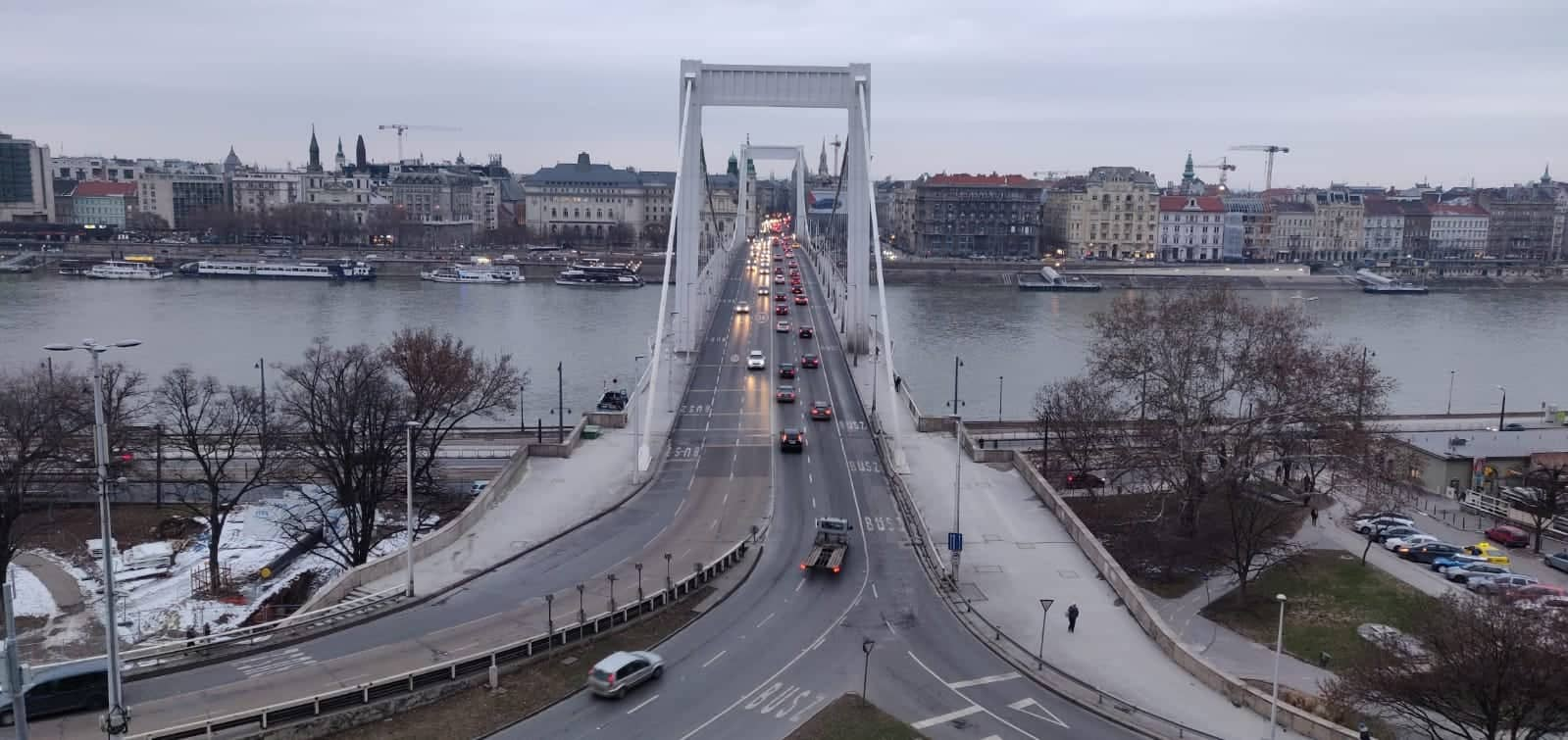
Turning up the notch on the cringe, in true Mira style, trying to answer this question I found myself returning to the question of “Why do I do any of this?”. As a believer in personal privacy online, I find it difficult to write these (not so) monthly posts about my experiences. For the majority, I hope at the very least they are entertaining to read.
For others, I hope they help explain my situation, who I was and what I think about life in Zagreb. But for myself, I must remind myself why I write. I write for the young girl that I was. Hiding in my room, afraid of the world and afraid of giving life a serious chance, but yet desperately yearning for an escape. Typical teenager.
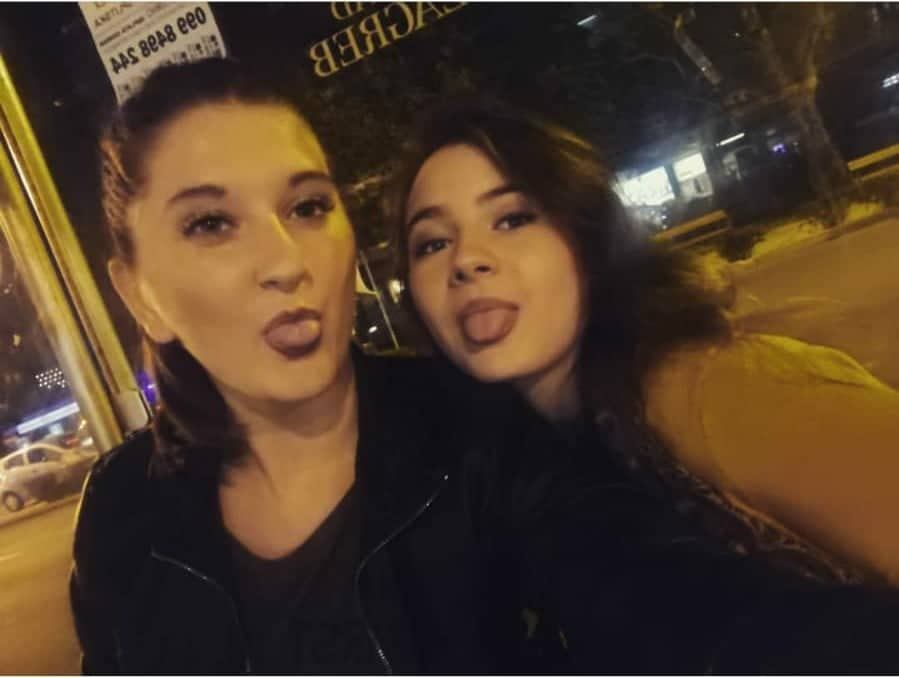
I remember being fourteen trawling through sites about homestays abroad, how to get onto an exchange program, and I was desperate to get out into the world, Japan, Spain anywhere that would offer me excitement. I dreamt of swimming across the channel to France (if David Walliams could do it for charity, then surely I could do it too!). I thought about how I’d pack up my belongings in zip-lock bags so they’d float alongside me as I swam. I dreamt about running away to the eurostar and becoming a lowly waitress in Spain.
Sixteen came and I had been spending my time learning Japanese (you were right mom, it was just a phase). Planning how, when and where to go to become an English teacher there. Eighteen came and universities abroad were the topic of my free time. I write to give hope to the fourteen year old me cooped up in her room dreaming of suicide and life in another world. I write for my friend who, just last year, overcame some of his most fundamental fears and countered his psychological struggles (such as OCD) and travelled around Europe with a group of strangers totally off his own back. Creating memories I can’t help but admire. We were all typical teengers once!
I fantasized until I was finally met with the chance to leave. And so, in a rush against the clock, making the most of these teen years while I can, this last year has been a cacophony of unusual experiences interwoven with shifts at my equally unusual workplace, to create memories I’ll continue to tell.
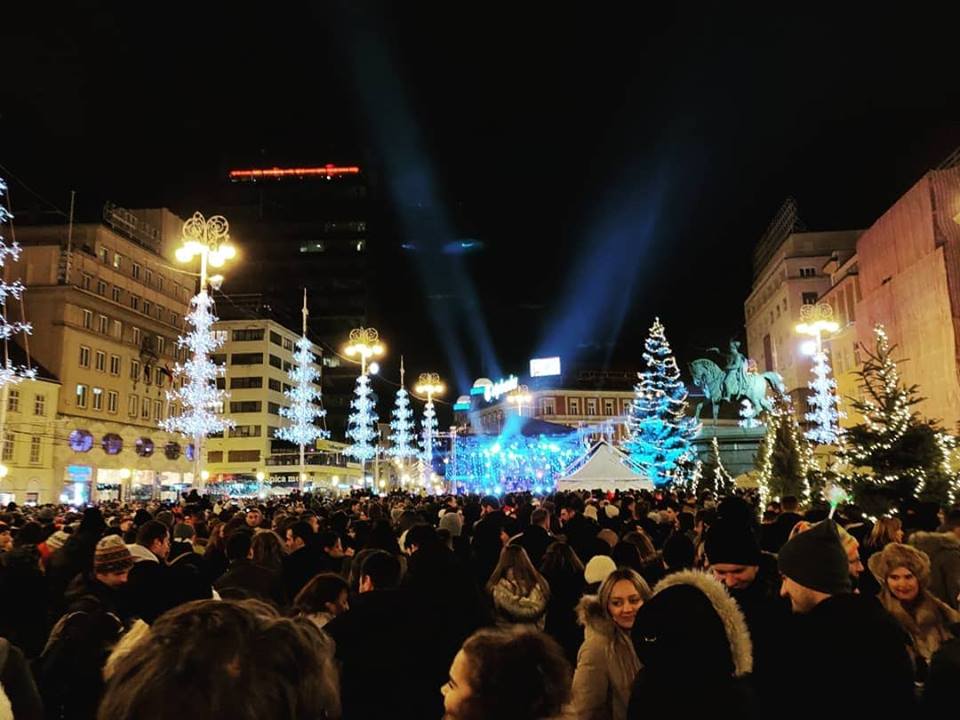
Soon you'll be able to read more at http://miramaughan.com, so watch this space!
Give Total Zagreb a follow for more.
Brexit and Croatia: How Croatia's Brits Should Prepare
We're still not sure how things stand entirely when it comes to Brexit, or whether it will happen at all. Despite the now agonising insanity of this senseless process, let's have a look at the current situation (which will probably have altered a few times before I finish this article. I wish I was being sarcastic).
After a trend of crushing defeats had become the humiliating norm for the enfeebled PM, Theresa May finally had her day (sort of) in the latest vote on various amendments to her withdrawal agreement. MPs voted against no deal - which should effectively take the catastrophic threat of the United Kingdom crashing out of the European Union without a deal in place at the end of next month off the table entirely - had it not been a non-binding amendment.
British MPs also voted against an Article 50 extension, which would have allowed for the two year window allowed for negotiations when a member state declares its intention to leave the bloc to be extended for a period which would have been agreed upon had it passed.
So, what happened in layman's terms? What happened is that the Commons continued the insanity by voting against a no deal, making it clear that the United Kingdom leaving the EU without a deal in place was not in anyone's interest, nor should it be the British Government's policy, but they also voted against extending the time needed for any further negotiations. A bit odd, you say? A bit chaotic? Yes, it is.
Instead, MPs gave Theresa May a mandate to go back to Brussels to attempt to renegotiate the troublesome Irish backstop, which acts as an insurance policy to prevent a hard border between the Republic of Ireland and Northern Ireland. The EU has already stated that the backstop is part of the deal and cannot be opened up again. Britain is, once again, experiencing an impasse. With the now internationally weakened United Kingdom stuck between a rock and a hard place, what does this mean for British nationals living and working in Croatia?
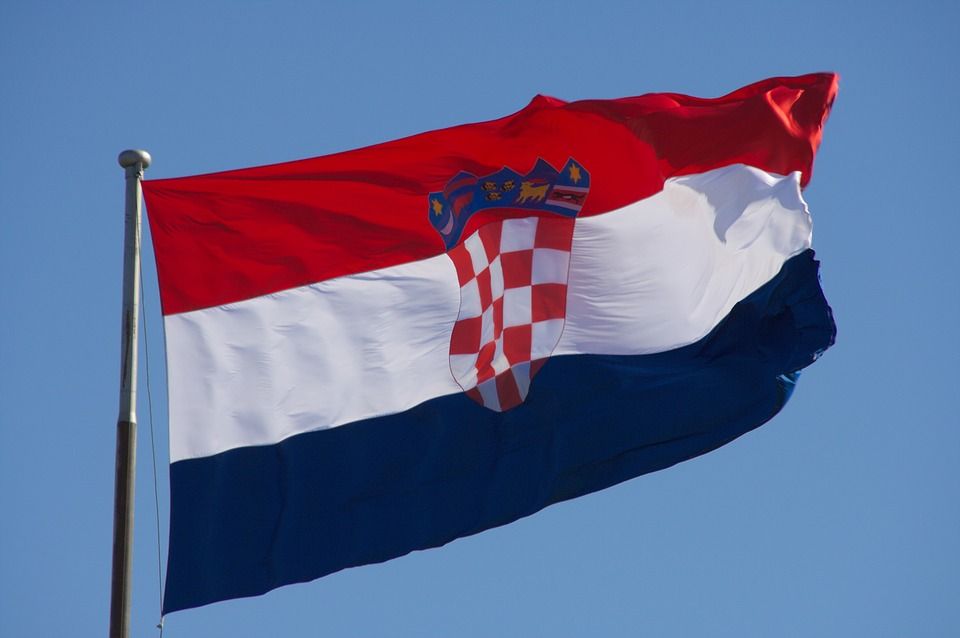
A look at the current scenarios:
Theresa May's withdrawal agreement is ratified by the UK and the EU:
We've already covered what will happen if Theresa May's initial withdrawal agreement ends up being passed, which, as the clock runs down to the rapidly approaching and ominous date of March the 29th, when Britain is due to leave the European Union after over forty years of membership, could still end up being ratified.
If the British PM manages to arrange new terms with the EU regarding the hated Irish backstop, however unlikely, then the withdrawal agreement has decent chances of being ratified later this month. If that happens, the fate of British citizens in Croatia will be firmly secured. Life will go on as normal until the end of December, 2020, when the implementation period ends. If you are resident in Croatia, registered with the authorities and have a biometric residence permit (privremeni/stalni boravak), you'll continue life as you do now. You'll be able to apply for permanent residence as normal after racking up five years of legal residence in Croatia and as such gain almost all of the rights Croatian nationals enjoy, after a further three years, you can also apply for citizenship if you want to. If you already have permanent residence, you're already sorted.
Under May's deal, those with permanent residence will be allowed to leave their member state of residence for five consecutive years without losing their status, which essentially means you have it for life. Read this article for more detailed information on that.
Article 50 extension:
The clock is ticking, and the dreaded Brexit day is fast approaching. A delay is becoming increasingly likely, despite having been voted against recently, it doesn't mean this won't become necessary to avoid a tragic no deal exit. If this occurs, nothing will alter for you until a new Brexit date is confirmed.
EEA/EFTA style agreement:
Several countries, including Norway and Iceland, are in the European Economic Area but are not members of the EU, in fact. These two countries still abide by the four freedoms of the single market in order to obtain unrestricted access to it, one of which is the free movement of people, which means that should Britain opt for some sort of ''Norway-style agreement'' as a too-little-too-late Plan B, the free movement of citizens will remain as it is today. This means nothing will alter for you, and you don't need to do anything.
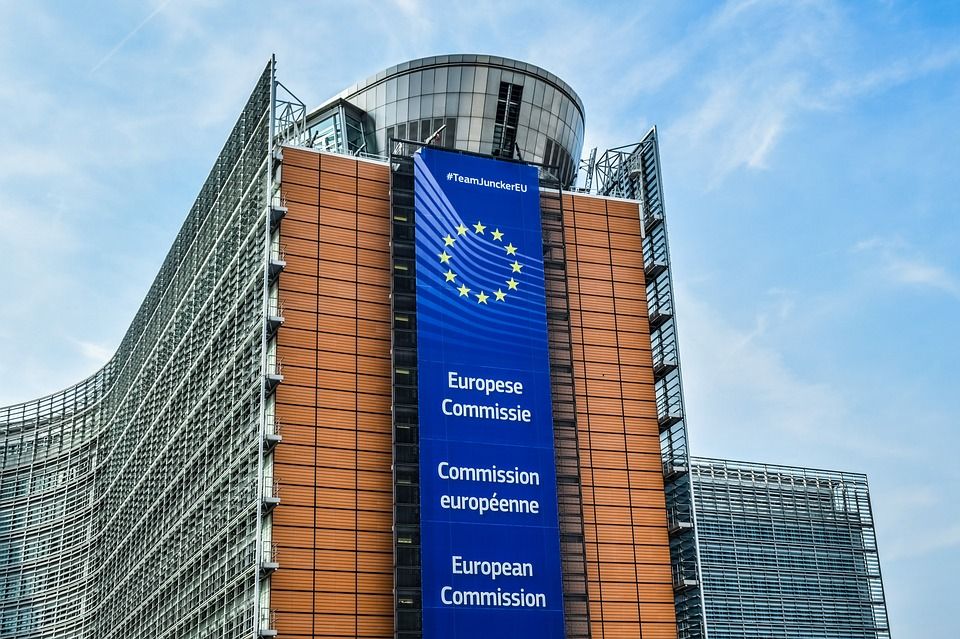
No deal Brexit:
Should the world's fifth largest economy end up crashing out of the world's largest trading bloc without a deal in place, the consequences will be dire for the country's economy. Dark days would be ahead of a Britain all alone in the world, with the threat of the worst economic situation since the recession potentially becoming a reality, all normal thinking individuals want to avoid this horrendous possibility. Such a scenario would have an extremely negative impact on the UK and the EU, and this situation will likely never become government policy. Britain is a European country and needs close ties, and a free trade deal, with the EU.
As I have written before, many EU countries have already come out to reassure British citizens living in their countries that their rights will be protected if a no deal does end up happening, with some such as Malta being extremely generous and offering Brits permanent residency (a renewable document valid for ten years) should this occur.
The European Commission has asked EU member states, including Croatia, to take a ''generous approach to British citizens who are already living on their territories''.
While such comments are a disgraceful abandonment in the eyes of many, especially after the UK respectfully unilaterally guaranteed the rights of EU citizens already living in the UK, all three million of them, the EU cannot make a similar unilateral guarantee in the event of a no deal Brexit as it is not a national body. Despite that, the good intention of the EC/EU is clear - the expectation of member states to protect British citizens who have made life choices based on the treaty rights that derived from their citizenship of the Union.
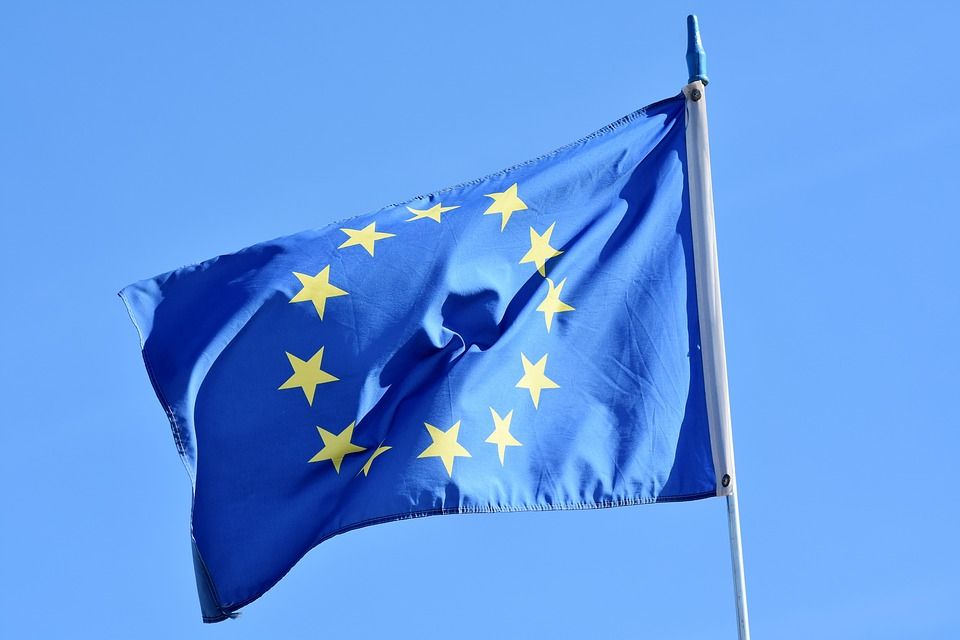
Unlike some other EU countries, Croatia is yet to speak publicly on the matter, but MUP has made clear that Croatia's intentions are entirely in line with the wishes of the European Commission when it comes to fully protecting British nationals who are living in Croatia with regulated status (biometric residence permit) on the 29th of March, 2019, should the UK crash out of the EU with no deal in place. I have been in contact with MUP and I translated their response, which we also published in another article detailing the work TCN will do with the British Embassy to keep information flowing:
''The Republic of Croatia considers that it is of great importance to protect both the citizens of the European Union in the United Kingdom, and the citizens of the United Kingdom in the European Union. The European Commission's intention is to ensure a high degree of tolerance for UK nationals already residing in an EU member state. Such reflections and efforts are in line with the objective of the Republic of Croatia that the citizens of the United Kingdom and members of their families who have a regulated status in the Republic of Croatia are not regarded as illegal persons on the date of their [the UK's] departure from the European Union, that their residence and unimpeded access to the labour market in the Republic of Croatia is allowed. In this regard, the Republic of Croatia will take the necessary measures to regulate the stay of UK citizens who, at the time of the United Kingdom's departure from the European Union, have regulated residence in the Republic of Croatia, in accordance with the European Commission's guidelines.''
Please read this article for further information, including a statement from MUP provided to Balkan Insight which also, along those same lines, suggested that the assurances and guarantees Croatia's 600+ resident Brits need will be forthcoming once the details on issuing new documents are finalised.
Given the fact that London has already unilaterally given rights to all EU citizens in the UK and will enshrine the rights of Croats in the UK into British law, rest assured that Croatia will respond in the spirit of reciprocity when the finer details are ironed out.
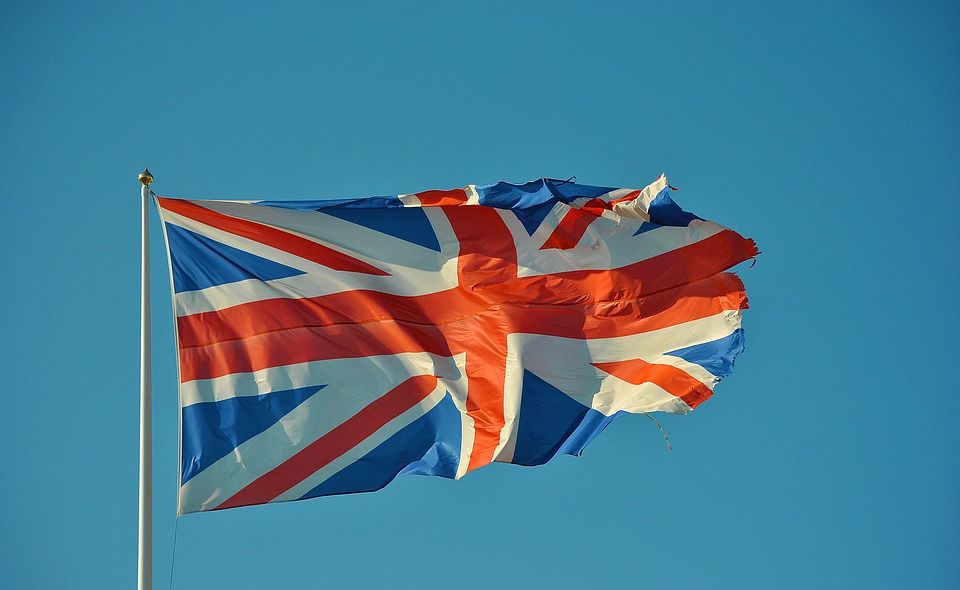
No Brexit at all
This is still a possibility, and should Article 50 be revoked and Brexit cancelled, nothing will alter and we'd remain with the good old status quo. This is unlikely, but remains possible.
What should you do if you live in Croatia to protect yourself against any outcome?
First of all, do not panic. Second of all, read the list below.
1) Make sure you are registered with the police and are in possession of a valid residence permit.
2) If you move, make sure to inform the police of your move at the local police station in your new city or town.
3) Make sure you have any documents you need, these will vary in different situations. For example, if you have purchased a house or taken out a rental contract, make sure to keep any papers that attest to that fact.
4) Convert your British driving license to a Croatian one here.
4) Make sure to stay up to date by following the British Government's Living in Croatia page for updates as and when they come. Sign up to receive an email about any updates.
5) Read this article and follow the links specified for information updates, the Brexit hotline, the Facebook page of the British Embassy, and an email contact.
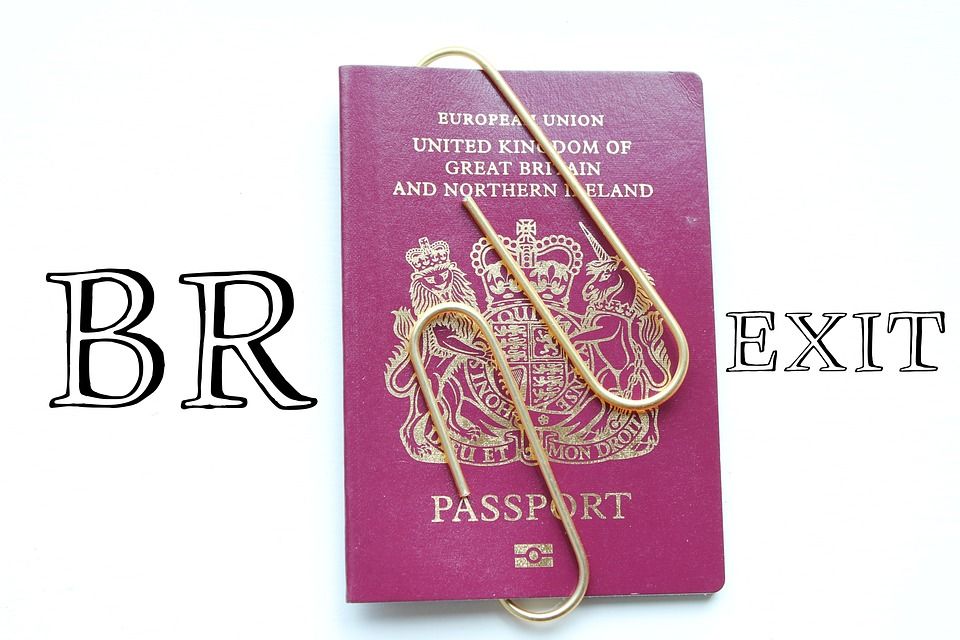
Just to add, the EU recently confirmed that British nationals will NOT need a visa to travel to the EU for short trips (90 days in any 180 day period) even in the case of a no deal Brexit. If you're in possession of a valid residence permit from an EU country, you will not be subject to the rules placed on British citizens living in the UK travelling to the EU for holidays.
The Schengen area is currently made up of 26 countries and Croatia applied to join back in 2015, two years after its accession to the EU. Croatia is not yet in Schengen, but hopes to enter soon. The Schengen area, named after the Schengen Agreement, will facilitate visa-free access for British citizens on short stays of less than 90 days. Again, if you are a registered resident of any of the Schengen countries, this rule will not apply to you regardless of your nationality.

Make sure to stay up to date by following our dedicated politics page, and by following the British Embassy in Zagreb with the #UKNationalsinCroatia tag.
From Clubbing to Camden to Chicken Farming in Croatia, Leaving London on a Hunch
From the booming nightlife of one of the world’s major cities, to helping my mother raise GMO free chickens on a family farm, it’s not the transition in life many young adults would willingly take.
In my introduction to Total Croatia News, I mentioned leaving the fast paced and opportunity “haven” of London instead to start afresh in a small village of the Croatian Zagrebačka region. By small village, I mean one street with a milk depot, several farms and a café bar. There is one bus that runs through at 6am connecting you to the nearest big town but returning is near impossible without a car. In short, I decided to move as I thought I had a sign from the universe to do so.

It sounds more than crazy to move based on a suspected “hunch” to a place famed for war and political corruption, and I was stubborn up until the last minute. There were many reasonable factors that influenced my decision to leave and many just as reasonable telling me to stay: Croatia offered a safer way of life but was lacking in professional opportunity. I was young and it could be a “life changing experience” but I also did not know the language or have a clear plan ahead.
Despite the constant back and forth, the ultimate choice to plunge headfirst into Croatian life was based on instinct and the fact that I thought (half jokingly, but probably more seriously than I will admit) the universe was guiding me to so do. It was this gut instinct combined with the phrase “heck, why not” that dictated most of my decision making process, and later adopting from my mother the philosophy of “we’ll cross that bridge when we get there” that guided me to where I am today.
After my family moved, I stubbornly stayed behind with my Grandmother in a small hippie village of East Sussex. Christmas time was upon us and I was desperate to see my family over the festive period. Broke from travelling around the UK and London visiting friends at university, tired of vegan food in the village, I decided to browse online at my potential options in Croatia. To figure out what all the fuss was about.
I would take my laptop to Costa coffee most days to get my daily dose of free wifi and I scoured the internet for university and job opportunities in Zagreb. After a long argument with my mum over the phone about what I will do in the coming future (and subsequent existential crisis in the corner of the cafe with a mocha and brownie in hand), I booked my one way flight to Zagreb Airport and breathed a sigh of relief that I’ll be able to see my family over the Christmas holidays.
I had the intentions of returning and to begin my university degree, but that was until I heard back about one of my job applications in Zagreb. I had been invited for an interview!
Exchanging emails with the representative, eventually we settled on a date. The day after my plane would land, I would have an interview. I sat in the chair surrounded by the miasma of coffee and pondered the success. After months of applications to various jobs in England without success, here, I had an interview ready only a few days after application. Living in England on my own I had encountered many roadblocks and became overcome with loneliness and defeat, but any moves I made directed towards Croatia seemed to fair well with relative ease. I took it as a sign, and realised I had to give Croatia a serious chance when I arrived.

At the time before moving, I saw London as the pinnacle. The huge transport network would take me anywhere I needed to be, which, at my age just meant Pryzm or XOYO. I had my established group of friends and knew more or less how the country functioned - Never count on Southern Rail, Wetherspoons for cheap drinks, and Peckham is the bit you go around. In short, I understood and saw a convenience in London I didn’t want to walk away from.
I am still infatuated with this convenience. I can’t deny that London is a more modern, booming city and I often find myself missing the variety and ease of access it had to offer that Croatia so poorly lacks in. What Croatia does offer in place of convenience for me though, is a sense of belonging. With a strong Russian background, there were many times I simply did not understand or connect with the British culture. I felt the same kind of “click” in Zagreb, as I did when visiting Moscow or our hometown of Yaroslavl.
This “hunch” or feeling of rightness is what kept Croatia in the back of my mind as a legitimate option despite having no real foundations there, only the experience of a few family holidays. So when everything fell into place while preparing to visit, and subsequently when I arrived, I couldn’t help but feel like the universe was screaming at me to go.
On the plane ride over, it was my first time flying totally alone. Nervous and self conscious, I made sure I read every sign and checked my bags over and over. I was petrified. Then on the second plane, connecting me from Warsaw to Zagreb, I had the pleasure of meeting a young Croatian man from Rijeka. We chatted about life in London where he had been working and he prepared me for life in Croatia, giving me advice on the best coffee spots too. We continued our conversation all the way up until we had to depart at the exit of the airport.
I got a taste for what was to come. I felt at ease waiting for my ride, and quietly thanked the universe for showing me what life can bring. What is possible when you give yourself completely up to chance.
From Korea to Zagreb: Soyeon Won Reflects on Decade in Croatia
While the headlines continue to be dominated by the depressing tales of the mass exodus of Croatia's inhabitants to other countries, there is a much quieter, but still very much present, trickle of foreigners making Croatia their permanent home. One of these people made the journey from Asia, and relocated from Korea to Zagreb in search of happiness, which she well and truly found.
''If someone is looking for a nice place to live, I'd certainly recommend Croatia, but if they're coming to develop their career and earn money, I'd definitely offer them some friendly advise to go somewhere else,'' says 35-year-old Soyeon Won, who relocated from Korea to Zagreb almost a decade ago,.
As Novac.hr/Jutarnji/Boris Oresic writes on the 8th of December, 2018, back in 2015, she opened the Korean restaurant Cro K on Ulica pod Zidom (Street under the Wall) near Dolac in central Zagreb. Cro stands for Croatia, and K for Korea. Soyeon states that she's so fond of the name Cro, that she named her eldest son, who is now eight, Cro, because he was born in Croatia. In Korea, as she says, there is no such male name, but regardless, it sounds good to her.
It's no secret that South Korean people love Croatia, which is best evidenced by the data proving that a growing number of tourists are visiting Croatia from this distant country in which the Croatian tourist offer has been being very well advertised over recent years. There have also been some very popular TV shows which were shot in Croatia, after which the curious Koreans, fascinated by the beauty of the cities and nature that they saw on their screens, began visiting in larger numbers.
Some, like Yo Han Kima, a Korean shop owner, came to Croatia on holiday, and they ended up liking it so much that they decided to stay, live here permanently, and even start their own business. Gye Yoen Cho from the Korean Embassy in Zagreb revealed that according to her knowledge, around 180 South Korean citizens have made the move from Korea to live in Croatia, but as they're not required to report to the embassy, the actual number is certainly somewhat higher than we'd expect. A good deal of them came to Croatia to study initially and ended up staying, while some work in Korean company offices, particularly Samsung.
The amount of people who have either tried, or have successfully made the move from Korea to Zagreb and beyond remains unknown by the embassy, but their numbers are likely higher than we might imagine.
"There are more and more Korean tourists in Croatia and I hope there will also be more investors. For the time being, there aren't many examples of that, but there is a lot of research on the market and they're exploring opportunities to launch jobs mainly related to tourism, as well as more significant investments,'' says Gye Yoen Cho.
According to the latest data from the Central Bureau of Statistics, during the first eight months of this year, Croatia increased its exports to South Korea by 117.5 percent compared to the same period last year, to 509.33 million kuna. At the same time, imports increased by 51 percent to approximately 917 million kuna. Economic co-operation between Korea and Croatia continues to grow, but not as fast as it could, and Croatia hasn't particularly emphasised its desire to attract direct investments from that Asian country, as was highlighted last week and at the Korean-Croatian Economic Forum which was held in Zagreb.
Last year, Croatia was visited by a massive 444,000 Korean tourists, and it is expected that this year, those numbers will be even higher. In the first seven months of 2018, there were 180,000 Korean tourists, or 29 percent more than in the same period of 2017.
In Zagreb, Koreans have been by far the most numerous guests for a number of years now, and in the first half of this year, the Croatian capital was visited 55,600 Koreans, which is 43 percent more than last year.
Everyone expects that these positive trends will continue in the coming years, especially as two Korean reality shows have been recorded in Croatia this year, and Korean Air also introduced a direct connection between Zagreb and Seoul which runs twice a week, which made the Croatian capital and the rest of the country as a whole much more accessible to Koreans than ever before.
Korean Air's sales representative for Central and Eastern Europe, Michal Ohnesorg, told Globus that this welcome direct line was introduced primarily owing to a large number of Korean tourists travelling to Croatia. Additionally, the number of travellers from Croatia and neighbouring countries who are heading to Korea or specifically Seoul as their final destination has also increased.
"We believe that the introduction of Seoul - Zagreb connection was a good business decision and we're confident that this line will be successful in the future," concluded Ohnesorg.
Research has shown that Korean tourists typically look to travel to destinations which inspire them, where they will learn something about history and the local lifestyle, expand their knowledge and their perspectives, and they travel with the same intensity for twelve months of the year. When at home Koreans, regularly visit Korean restaurants, and in the Croatian capital, thanks to those making the move from Korea to Zagreb, there are two already, Cro K in the very centre of Zagreb, and Omma on Unska street in Trnje.
Cro K's owner Soyeon Won studied Italian language and literature at home in Korea, and she worked as a translator and dreamed of completing her studies in Italy. Then she got married and her husband got a job at the Korean Embassy in Zagreb, which she liked very much because Croatia is so close to Italy. She then relocated from Korea to Zagreb.
By then, her husband had three years of cooking experience behind him from working in restaurants in America. She admited to Novac.hr/Jutarnji, that she herself had nothing to do with gastronomy. When their sons, born in Croatia, grew up a little, Soyeon Won began thinking about starting her own business, and so in June 2015, she cemented her move from Korea to Zagreb by opening the city's central Korean restaurant after finding a suitable space, right in the heart of Zagreb, where there used to be a cafe. They had to invest heavily in decorating. On the ground floor there is a 33-seat dining room and another 40-seat room in the basement, as well as the obvious - a kitchen.
"My friend has restaurants in Vienna and he was astonished when I told him what the price of renting space in the centre of Zagreb is, it's almost like it is in Vienna.
Zagreb is comparatively quiet and comfortable when compared to Seoul. In Korea, they all compete and compare with each other. Here, we're happy, the kids go to the British school, and my husband recently opened a company that deals with the sale of metal products from Korea. When I started this job, my acquaintance with people from Croatia helped me greatly with the administration, which is far more complicated than it is in Korea, was very important to me. My husband says that it isn't as demanding even in America as it is in Croatia,'' says the young Korean, satisfied with the fact that she has more and more guests every year, especially in the tourist season, which runs from March until November.
Therefore, she adds, she's happy with not only her move from Korea to Zagreb, but with her business, and she hopes that next year will be even better than this one.
The restaurant's guests are mostly tourists, not just Koreans, but, as she reveals, there are plenty of Germans, French, Americans, Chinese, Malaysians, and others who like Korean food. But it's no surprise that Croats also often come to try something new and exotic, and some have already become very regular guests.
In the beginning, Soyeon Won was mostly cooking everything herself, but one year later, there were some Korean chefs, two young men who moved from Seoul to work with her in Zagreb. She employs four chefs and three waiters. Soyeon added that it isn't easy to keep hold of Croatian workers during the summer because everyone prefers to go to work on the coast where they typically earn more money.
"The laws in Croatia are much more inclined towards workers than they are in Korea. It's happened to me that a waiter or chef has told me that he can't work, and I can't do anything about it. There are many reasons it is not really easy to do business in Croatia, I know some Koreans who came here to try something, but quickly gave up. I don't intend to go anywhere.
Every summer we go to the coast and have never seen such a beautiful coast as Dalmatia, and I have more and more friends who are Croats. I don't include myself among those Koreans who just can't live without kimchi, Korean fermented spicy cabbage, so at home, I often prepare European dishes, and I love Croatian food, particularly sarma and kulen,'' says Soyeon Won.
Make sure to follow our dedicated lifestyle page for more stories from not only those who have made the move from Korea to Zagreb, but of many of Croatia's foreign residents from close to home in Europe, and from much further afield.
Click here for the original article by Boris Oresic for Novac.hr/Jutarnji
From the Philippines to Dalmatia: Filipino Woman Falls in Love with Šibenik
All the way from Asia, to the oldest native Croatian town on the shores of the sea - Šibenik.
The media loves to run constant bleak stories about the mass exodus of people from Croatia heading off to Western European countries in search of better wages, more security and more opportunities to further their careers of choice. It isn't that these stories are exaggerated, Croatia does indeed find itself in a less than favourable position economically, with expert sources claiming that the country learned absolutely nothing from the crisis from which it emerged only a few years ago. While these depressing tales may not be over-exaggerated, they are perhaps somewhat oversaturated.
Despite the media headlines, many a foreigner comes to Croatia, and while life isn't easy and the bare bones of Croatia's rather grim reality hiding just underneath its pretty face might come as a shock to most, there are more and more people who come here and with persistence and an ever-adapting thick skin, manage to make it work. These people aren't just other Europeans who come from countries with systems that are similar in some way or another and therefore find it a little easier to adapt, but from countries much, much further afield than our continent.
As SibenikIN writes on the 24th of November, 2018, one 26-year-old woman all the way from the Philippines has decided to make no less than the historic Dalmatian city of Šibenik home.
''Šibenik's sunset is the most beautiful in the world!'' stated the woman who switched the Philippines for the Dalmatian coast.
"When I first came here, it was morning. Silence. And I thought: Oh my God, this is the city I want to live in!'' said Elovelle Liego in conversation with HRT/Sanja Jurisic.
Elovelle stated that her desire to live in Europe was finally realised as she began working in a hotel in the very heart of Šibenik, where she remained working after the summer as a chef, writes HRT.
"I make strudel and Šibenik cake (Šibenska torta), I can cook pašticada and salsa," added Elovelle. When it comes to work and wages, otherwise two of the things most are unhappy with, aside from politics of course, she says she is more than happy, and she loves her fellow citizens of Šibenik.
"They're very good, kind-hearted, they pass by here and greet me everyday," she said, adding that she's gradually learning the Croatian language. While Elovelle is full of praise for Šibenik's friendly locals, the feeling is very much mutual towards her.
"They have some inborn sense of hospitality, they're really approachable, hard working," said Fabiano Baranović from Hotel King Krešimir in Šibenik, when speaking about Filipino workers. It also seems that Elovelle won't be the only Filipino working in Šibenik in about one year's time.
"I think there could be a couple more, just to make sure we avoid problems in tourism," Baranović added.
And one of those key problems is a lack of workforce, with many people taking advantage of their freedom of movement across the European Union, Croatia has been left not only with a demographic crisis, but with one of its most bitter symptoms - nobody to do any work. In the area of Šibenik-Knin County alone, as many as 500 work permits for foreigners were requested this past summer.
Make sure to keep up with our lifestyle page for more. Thinking about making the move to Croatia yourself? Get acquainted with the country's residence system here.
Residence Permits in Croatia - Welcome to the Minefield
ingOctober 21, 2018 - So you've decided you want to move to Croatia, but just how does one go about it? An introduction to residence permits In Croatia.
From the Philippines to Croatia, Šibenik Wins Foreign Hearts
With all the negative news of people leaving in their droves, there are much quieter arrivals, too...

